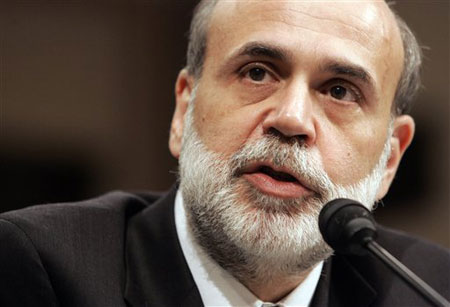
The Federal Reserve has cut a key interest rate by a
quarter-point, a smaller move than the aggressive easing it
undertook earlier this year.
The Federal Reserve has cut a key interest rate by a quarter-point, a smaller move than the aggressive easing it undertook earlier this year.
The Fed action, announced Wednesday after a two-day regular meeting, pushed the federal funds rate down to 2 percent, its lowest level since late 2004. It marked the seventh consecutive rate cut by the central bank since it began easing credit conditions last September to combat the growing threat of a recession brought on by a deep housing slump and credit crisis.
The rate cut will mean lower borrowing costs throughout the economy as banks reduce their prime lending rate, the benchmark for millions of consumer and business loans.
The Fed move was in line with expectations. Wall Street believes this could well wrap up the Fed’s rate cuts unless the economy threatens to fall into a worse slump than currently expected.
The Fed said it stood ready to “act as needed to promote sustainable economic growth and stability.” That phrase was seen as a signal that the Fed is as worried about weak growth as it is about the risk of higher inflation.
The Fed devoted portions of its statement to both the threats of weakness and the threats that inflation could pose, likely reflecting the debate inside the central bank.
There were two dissents from the move, with both Richard Fisher, president of the Dallas regional Fed bank, and Charles Plosser, head of the Philadelphia Fed, arguing that the central bank should make no change in rates.
The central bank is walking a tightrope, trying to jump-start economic growth while also confronting the risk that if it overdoes the credit easing it could make inflation worse down the road.
Many economists believe the country has fallen into a recession. However, the government reported Wednesday that the overall economy, as measured by the gross domestic product, managed to eke out a 0.6 percent growth rate in the January-March quarter, barely in positive territory.









